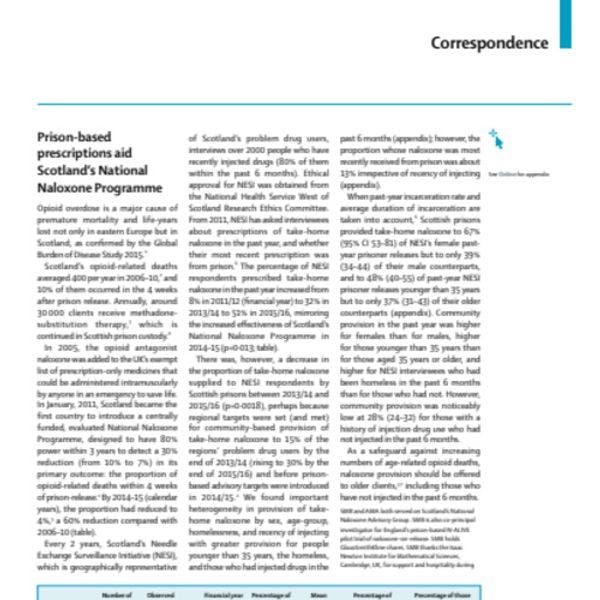Las prescripciones en las cárceles contribuyen al Programa Nacional de Naloxona de Escocia
El programa ha logrado reducir en un 60 % las muertes relacionadas con opioides en las cuatro semanas que siguen a la excarcelación. Más información, en inglés, está disponible abajo.
Suscríbase a las Alertas mensuales del IDPC para recibir información sobre cuestiones relacionadas con políticas sobre drogas.
Opioid overdose is a major cause of premature mortality and life-years lost not only in eastern Europe but in Scotland, as confirmed by the Global Burden of Disease Study 2015.1
Scotland's opioid-related deaths averaged 400 per year in 2006–10,2 and 10% of them occurred in the 4 weeks after prison release. Annually, around 30 000 clients receive methadone-substitution therapy,3 which is continued in Scottish prison custody.4
In 2005, the opioid antagonist naloxone was added to the UK's exempt list of prescription-only medicines that could be administered intramuscularly by anyone in an emergency to save life. In January, 2011, Scotland became the first country to introduce a centrally funded, evaluated National Naloxone Programme, designed to have 80% power within 3 years to detect a 30% reduction (from 10% to 7%) in its primary outcome: the proportion of opioid-related deaths within 4 weeks of prison-release.2 By 2014–15 (calendar years), the proportion had reduced to 4%,5 a 60% reduction compared with 2006–10 (table).
Keep up-to-date with drug policy developments by subscribing to the IDPC Monthly Alert.
